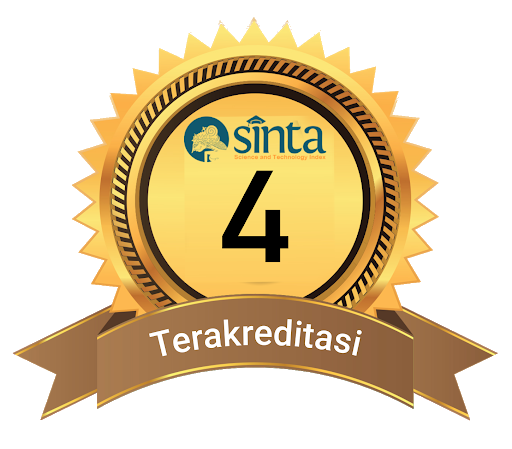ANALISIS PENGARUH PENGETAHUAN TENTANG HIV, EFEKTIFITAS KONDOM DAN KEMUDAHAN MEMPEROLEH KONDOM TERHADAP PENGGUNAAN KONDOM DALAM PENCEGAHAN HIV
DOI:
https://doi.org/10.21831/jim.v12i1.11742Keywords:
Knowledge About HIV, Condom Effectiveness Knowledge, Ease of Getting Condoms, Condom Use In HIV Prevention In The Male Sex Men (MSM)/ Laki laki seks laki laki (LSL)Abstract
The phenomenon of HIV (Human Immunodeficiensi Virus) and AIDS (Acquired Immunodeficiency Syndrome) has become a global issue. Various efforts have been and are being made to suppress the spread of HIV. HIV / AIDS has become a very serious epidemic threatening the health of the world community, through the United Nations decided to establish a separate body to deal with an epidemic of this one, namely UNAIDS. Meanwhile, since 1990, the World Population Agency (UNFPA), which had already been established also play an active role to combat the spread of HIV / AIDS, by running a comprehensive program in the field of reproductive health. The program is done either through the provision of information and education to the public and advocacy to mobilize political commitment and facilitate policies that support reproductive health.
This study is a qualitative research using primary and secondary data. The primary data obtained through interviews, questionnaires by respondent Laki laki Seks Laki laki (LSL) that accessing condoms in NGOs VestaYogyakarta, while the secondary data obtained from the document. The survey results revealed that knowledge about HIV variables (X1) does not have a partial effect on the use of condoms in HIV prevention (Y) in LSL in NGO Vesta. Variable knowledge of the effectiveness of condoms have a partial effect on the use of condoms in HIV prevention (Y) in LSL in NGO Vesta. Variable ease of obtaining condoms (X3), does not have a partial effect on the use of condoms in HIV prevention (Y) in MSM in NGO Vesta.
Variable knowledge of HIV (X1), knowledge of the effectiveness of condoms (X2) and the ease of obtaining condoms (X3) jointly influence simultaneously against the use of condoms in HIV prevention (Y) on Vesta NGO LSL in Yogyakarta. From the results of Adjusted R Square (because four variables) obtained yield was 0.392. In other words, 39.3% contribution variables influence of knowledge about HIV (X1), knowledge of the effectiveness of condoms (X2) and the ease of obtaining condoms (X3) on the dependent variable, namely the use of condoms in HIV prevention (Y).
References
Amirudin, Ridwan. (2012). Kebijakan Dan Respons Epidemik Penyakit Menular. Bogor: PT Penerbit IPB Press
Sunyoto, Danang. (2013). Perilaku Konsumen (panduan riset sederhana untuk mengenali konsumen. Yogyakarta: CAPS(Center of Academic Publishing Service)
KPAN (Komisi Penanggulangan AIDS NASIONAL). (2010). Panduan Ringkas Warga Dalam Penanggulangan AIDS. Kementian Koordinator Bidang Kesehatan Rakyat RI
Nasronudin. (2006). HIV & AIDS Pendekatan Biologi Molekuler, Klinis, dan Sosial. Surabaya :Airlangga University Press.
Noviana, Nana. (2013). Catatan Kuliah Kesehatan Reproduksi & HIV-AIDS. Jakarta: Tans Info Media
S. Uyanto, Stanislaus. (2009). Pedoman Analisis Data dengan SPSS. Yogyakarta: Graha Ilmu
Sekaran, Uma. (2003). Research Methodd For Business : Skill-Building Approach,
Frourth Edition, New York : John Wiley & Sons Inc.
Sugiyono. (2013). Metode Penelitian Manajemen. Bandung: Alfabeta
Sugiyono. (2012). Metode Penelitian Bisnis. Bandung: Alfabeta.
Sugiyono. (2011). Metode Penelitian Kuantitatif Kualitatif dan R&D. Bandung:Alfabeta.
Wijaya, Tony. (2013). Metodologi Penelitian Ekonomi dan Bisnis. Yogyakarta:
Graha Ilmu.
Downloads
Published
How to Cite
Issue
Section
License
An author who publishes in the journal "Jurnal Ilmu Manajemen (JIM)" agrees to the following terms:
Author retains the copyright and grants the journal the right of first publication of the work simultaneously licensed under the Creative Commons Attribution-ShareAlike 4.0 License that allows others to share the work with an acknowledgement of the work's authorship and initial publication in this journal.
Author is able to enter into separate, additional contractual arrangements for the non-exclusive distribution of the journal's published version of the work (e.g., post it to an institutional repository or publish it in a book) with the acknowledgement of its initial publication in this journal.
Author is permitted and encouraged to post his/her work online (e.g., in institutional repositories or on their website) prior to and during the submission process, as it can lead to productive exchanges, as well as earlier and greater citation of the published work (See The Effect of Open Access).
All materials in this site are protected by the law. It is prohibited to quote a part of or all of this website contents for commercial purposes without the permission or consent of the editors.
If anyone finds one article or more in this journal violate or potentially violate one's copyrights, please report to us through e-mail of Principle Contact.
Legal-formal aspects of accessing any information and manuscript in this journal website refer to the provision of license Creative Commons Attribution-Share Alike (CC BY-SA). Read more about the Creative Commons Attribution-ShareAlike 4.0 Licence here: https://creativecommons.org/licenses/by-sa/4.0/.
All information available in 'Jurnal Ilmu Ekonomi (JIM)' is academic in nature. 'Jurnal Ilmu Ekonomi (JIM)' is not responsible for loss due to the abuse of information in the website.


.png)

